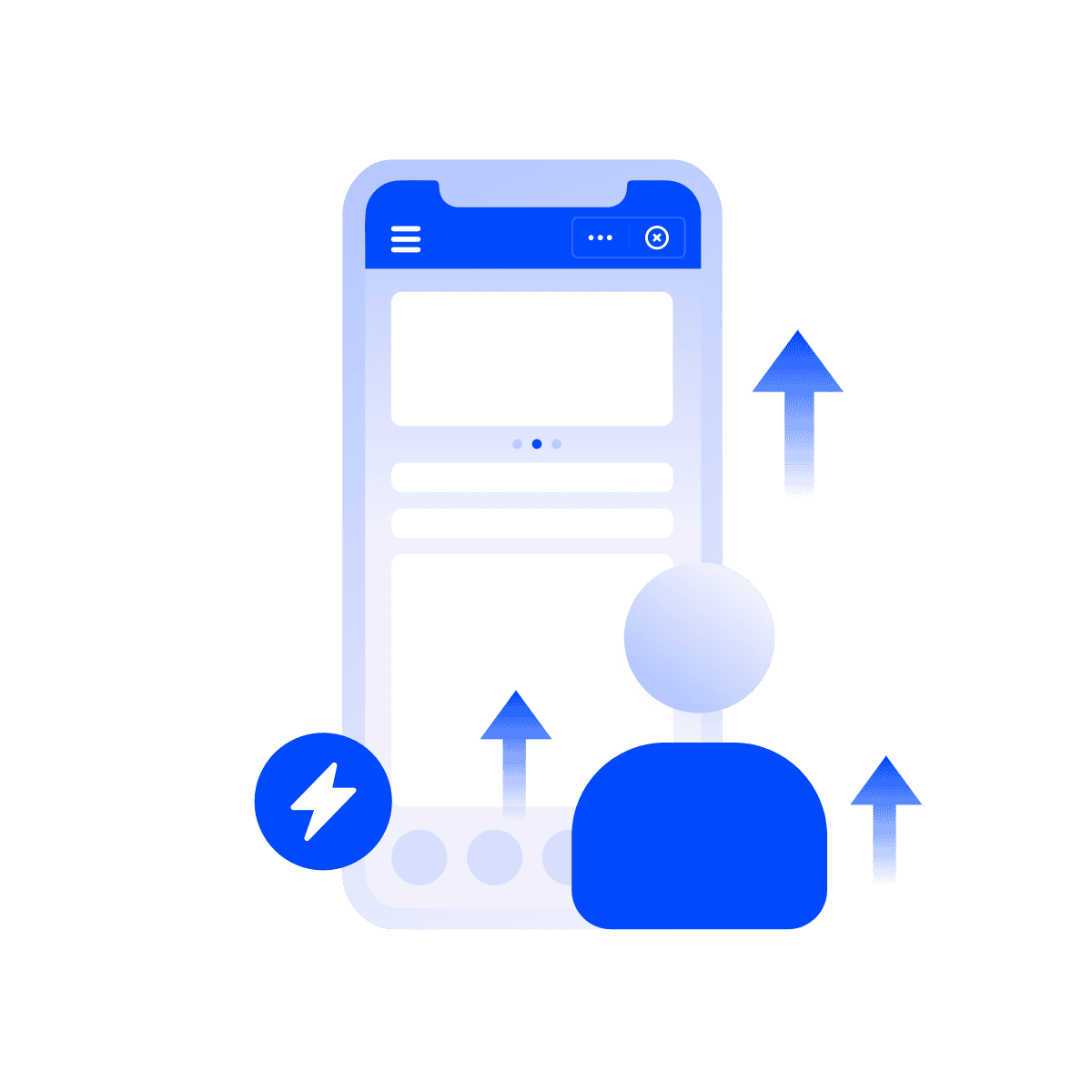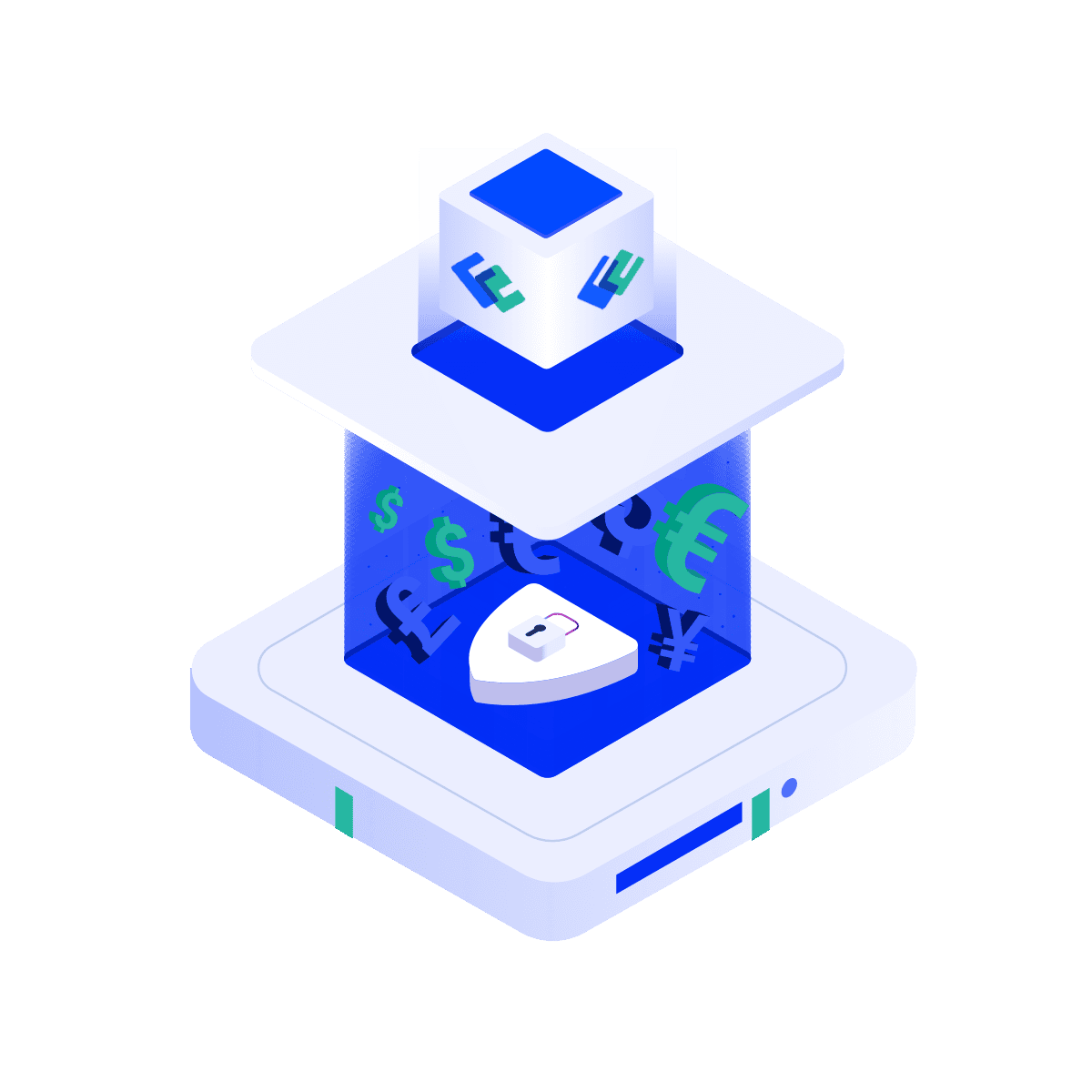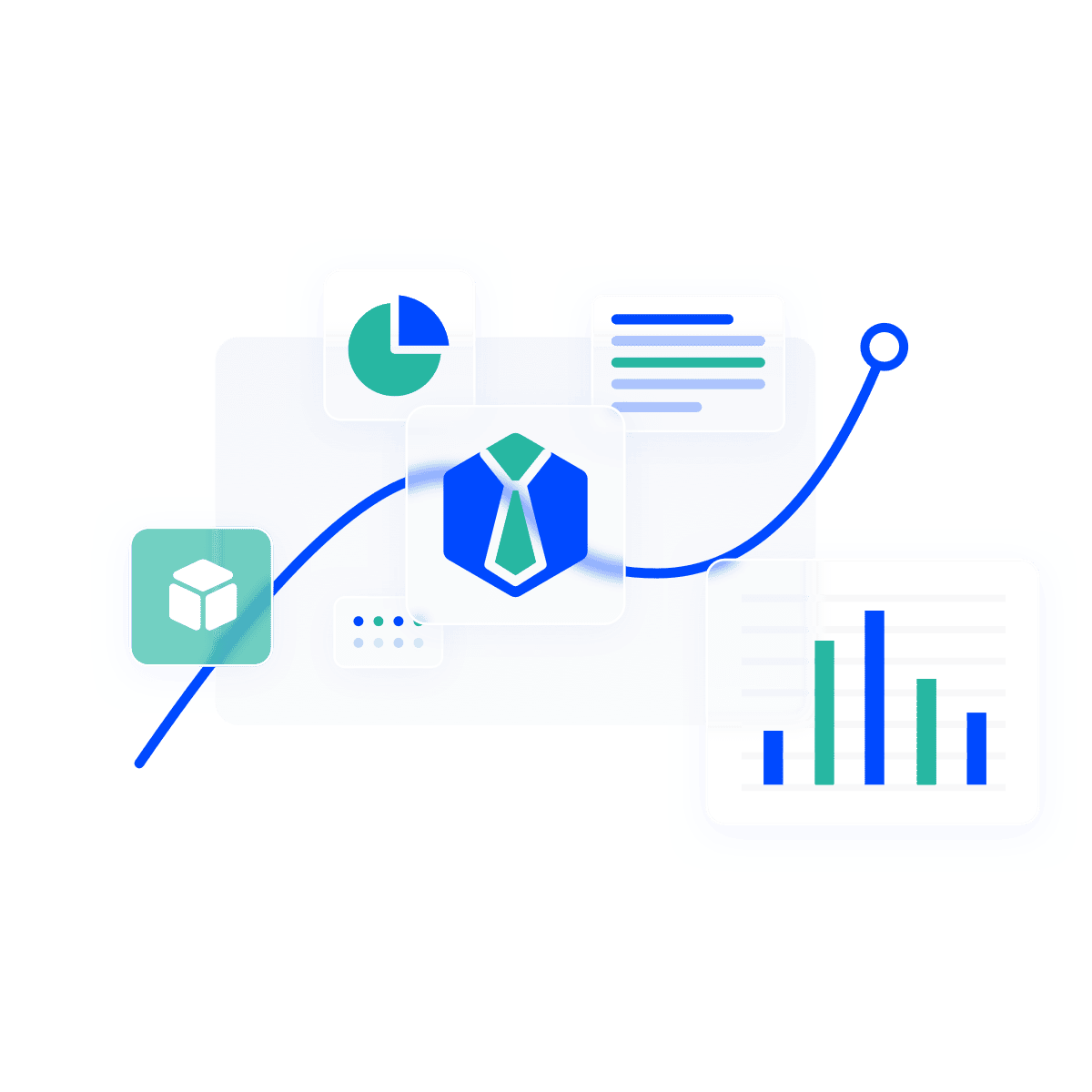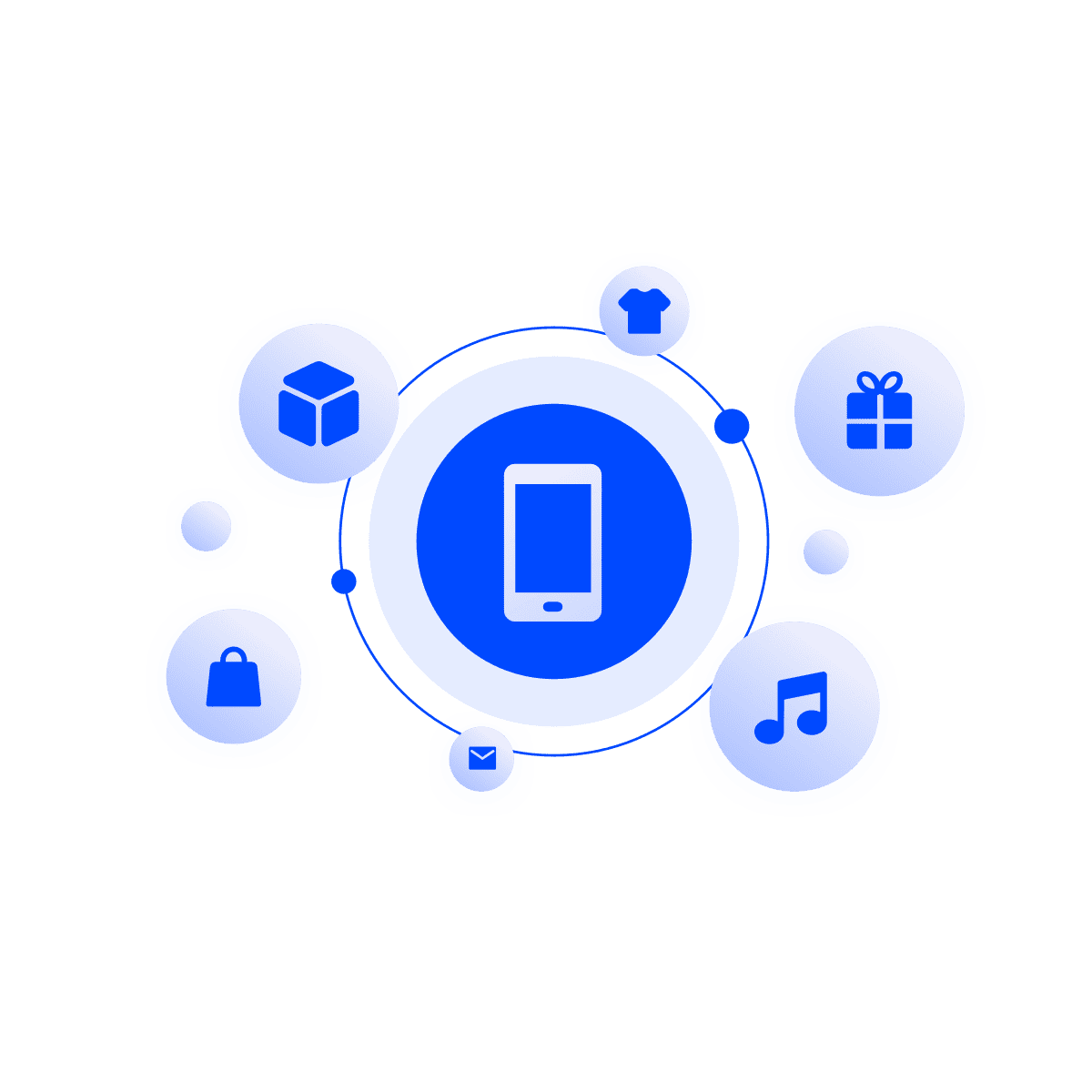Build Digital Ecosystem
Make It Super:
Put FinClip Store In Your App
Own a digital storefont of Mini-programs. Your App is now an "App Store" by itself - elevate your App with full cloud-side control of Mini-programs. Open your App to the world. Bring in partners and leverage their contents & services to serve your customers.
What makes an app Super?
Build an open platform with ecosystem
Support unlimited developers
Allow not only in-house developers but anybody on Internet to contribute mini-programs to your App securely with zero-interdepence and total isolation
Leverage unlimited partners
Bring in online business partners and leverage their digital services to serve customers
Build super-rich contents
Enrich offering of contents and services without boundary: retail services, entertainment media, social games, financial services, municipal services - sky is the limit
Rollout services super-fast
Publish digital services in mini-program forms on-the-fly. Update or withdraw them in your own store at will
How to make an app Super?
Own and operate a store for mini-programs
FinClip Store is storefront, developer portal and adminstration backend all in one
Deploy FinClip Mini-program storefront, a Web service that serves as a gateway into the universe of mini-programs and mini-games in your SuperApp. It ignites digital service discovery through intuitive navigation, intelligent search and personalized recommendation.
Deploy FinClip Developer Portal to easily onboard developers, whether from your own IT teams or from external partners or both, so they can develop, test and submit mini-programs and mini-games to your SuperApp for publishing, making contributions to your business, enriching offerings to your users
Deploy FinClip Administration Backend to administer your SuperApp platform. Publish, manage and monitor your entire ecosystem with ease. Have full control of digital service lifecycle. Perform grayscale release of mini-programs and mini-games. Conduct content audit & approval and gain market insights.
From App to Superapp
Unleash New Growth: Supercharge Your User Experience by Building a Mini-Program Ecosystem Within Your App
Increased User Engagement and Retention
Enhanced user experience:
Seamless access to various mini-programs within a single app keeps users engaged and reduces app fatigue.
Wider range of services:
Mini-programs cater to diverse user needs, increasing overall platform stickiness and retention.
Personalized experience:
Platforms can use data from mini-programs to personalize recommendations and improve user satisfaction.
Growing Revenue Streams
Transaction fees:
Platforms can charge developers transaction fees for in-app purchases within mini-programs.
Advertising opportunities:
Targeted advertising within mini-programs creates additional revenue streams.
Premium subscriptions:
Platforms can offer premium subscriptions for exclusive features or mini-program access.
Boosted User Base and Data Acquisition
Attracting developers:
A thriving mini-program ecosystem attracts developers, leading to more programs and a wider user base.
Network effects:
More users attract more developers, creating a virtuous cycle of growth and data acquisition.
Valuable user data:
Mini-program usage generates valuable user data, which can be used for targeted advertising, personalization, and market insights.
Competitive Advantage and Ecosystem Control
Differentiation:
A diverse mini-program ecosystem sets the platform apart from competitors by offering a one-stop shop for various needs.
Controlling the user experience:
Platforms have greater control over user experience and data flow within their ecosystem.
Potential for strategic partnerships:
Strong partnerships with mini-program developers can expand offerings and reach new markets.
Frequently Asked Questions
What is a mini-program store?
It is like an App Store or App Market owned and operated by yourself, except contents in it are not mobile apps but mini-programs. You have your developers contribute mini-programs to the store. You approve, publish and audit these mini-programs to be running inside your very own app. In fact, your very own mini-program store is what makes your app Super!
Technically, what does a mini-program store do?
The store provides these capabilities for your SuperApp. Firstly it helps you manage your mini-program "inventory", where you treat mini-programs like digital goods. Secondly it provides the mini-programs discovery mechanism for your users. Mini-programs are indexed and tagged so they can be queried and searched. Thirdly it can leverage recommendation algorithms so that mini-programs are automagically recommended along with other contents they are embedded with to your users, with context-awareness. Last but not least, a mini-program store is inherently capable of grayscale release control for rolling production of your digital services
How do I build and accumulate mini-programs in my store?
If you have in-house IT developers, you can have them develop mini-programs easily, as long as they know something about JavaScript and HTML. Each mini-program represents not only a software component but a real digital service that your users can interact with. They are independent of each other. So you can have many unrelated developers/teams to carry out development work in parallel. Furthermore, whether you have in-house developers or not, from an "operator" perspective you can always invite external parties to publish their digital services in mini-program form to your store so these services will run inside your app, enriching your offerings to your customers
How many mini-programs can I put in my store?
Technically it is unlimited. The total amount of mini-programs depends on your ability to convince more developers to provide contents for you, to attract more business partners to offer their services via your SuperApp and to build a large digital ecosystem for your own business. Some well-known SuperApp platform in China, for example, has several millions of mini-programs, practically leveraging many business to contribute "plugins" to its software platform - if you think a mini-program as a "plugin" from a software perspective.
Who owns a FinClip mini-program store?
If you deploy FinClip at your site, you have full ownership of the FinClip store. Contents (mini-programs) published to this store will be subject to your approval and distributed via your app (now a "SuperApp"). You can deploy it to your own server hardware on-premise, or to cloud resources under your own control.
Who can provide mini-program contents to my store?
If you have an IT team, they are the best candidates to develop contents for the store, as long as they know something about HTML/JavaScript/CSS. You can also source external developers and partners so they can put their contents to your store to enrich services offerings to your customers. Particularly, when your store starts to publish 3rd party code, your app becomes truly open and qualifies itself as a real SuperApp.
Are mini-programs related or dependent on each other?
No. Each mini-program published in your store is independent of each other. As a matter of fact, each of them can be independently deveoped by different individuals or teams without knowing each other. You are free to publish or withdraw any of them without interfering others. This way you can release business services one at a time with very fine-grained control. And your content contributors are no longer confined to internal IT.
What is an ecosystem and how is it related to my store?
Your FinClip mini-program store can be considered in ecommerce terms where you obtain digital goods from your suppliers (your internal IT team and/or your external partners) and you offer them to your customers. In this sense, your suppliers form your digital ecosystem. You operate a digital platform and eco members of your platform publish contents to the platform.
Why FinClip is also called a platform?
When you deploy and operate a FinClip mini-program store, you are on your way to turn your app into a SuperApp platform because now you enjoy the benefit of fine-grained control of functionality, unlimited timely publishing of new services and full risk-control of experimental contents in a "plug-n-play" fashion. Better yet, when you open up your store to allow external parties to publish their code to your app, it becomes a real platform where you aggregate "suppliers" to serve "consumers".
How do I build and accumulate mini-programs in my store?
If you have in-house IT developers, you can have them develop mini-programs easily, as long as they know something about JavaScript and HTML. Each mini-program represents not only a software component but a real digital service that your users can interact with. They are independent of each other. So you can have many unrelated developers/teams to carry out development work in parallel. Furthermore, whether you have in-house developers or not, from an "operator" perspective you can always invite external parties to publish their digital services in mini-program form to your store so these services will run inside your app, enriching your offerings to your customers
When I publish a mini-program to my app, do I need Apple or Google approval?
You need nobody's approval except yourself. Even though you are publishing new functionality/capability to your app, it doesn't involve any binary code changes in the app itself. You are not issuing a new version of your app and do not need to go through the extra trouble of re-submitting to Apple App Store or Google App Market and so on for approval. You are publishing mini-program code to your own store hosted at your own server. A mini-program will only be dynamically downloaded from the store to your app on-demand by a user when she happens to discover it and click on it.
How many mini-programs can I put in my store?
Technically it is unlimited. The total amount of mini-programs depends on your ability to convince more developers to provide contents for you, to attract more business partners to offer their services via your SuperApp and to build a large digital ecosystem for your own business. Some well-known SuperApp platform in China, for example, has several millions of mini-programs, practically leveraging many business to contribute "plugins" to its software platform - if you think a mini-program as a "plugin" from a software perspective.



